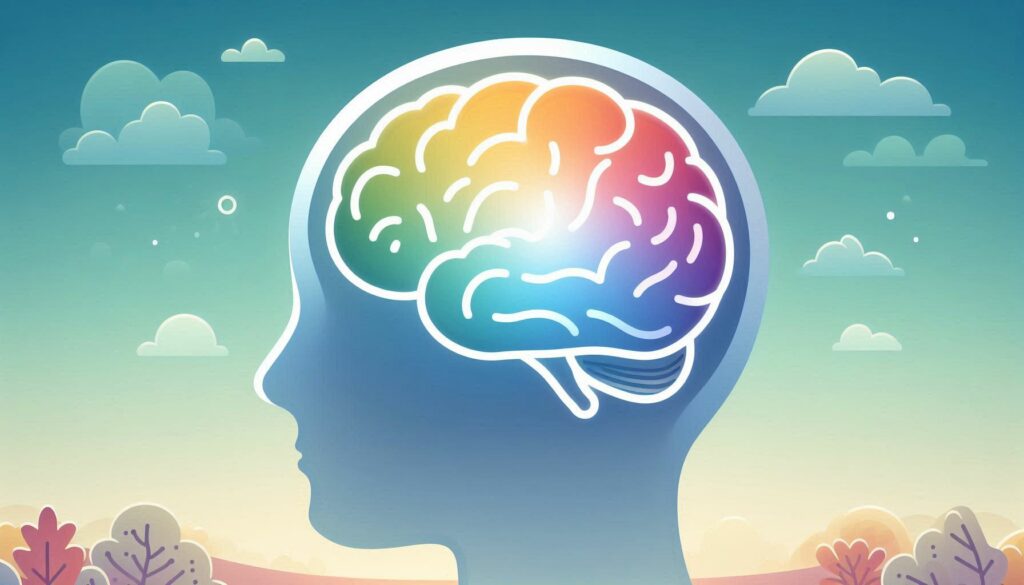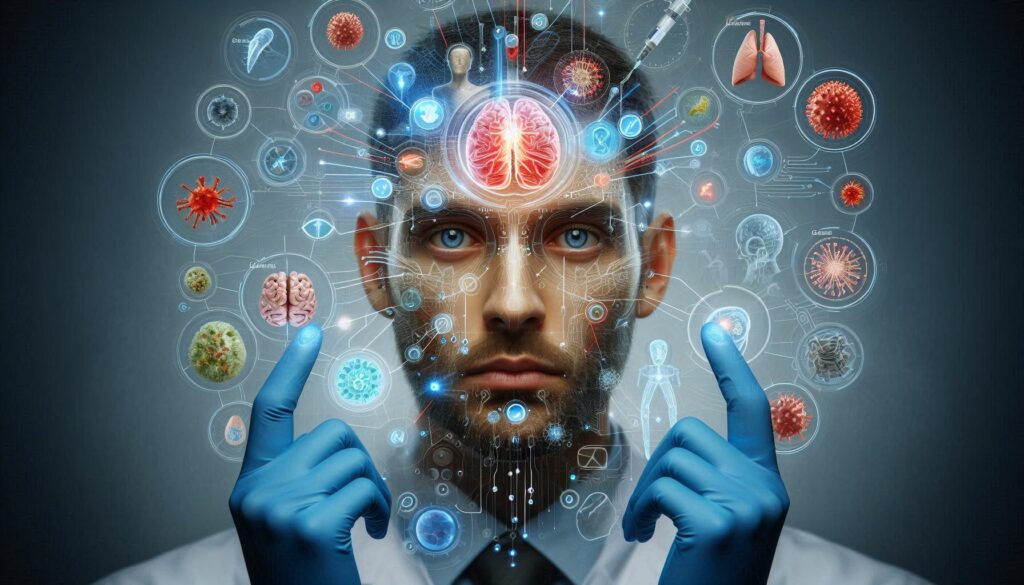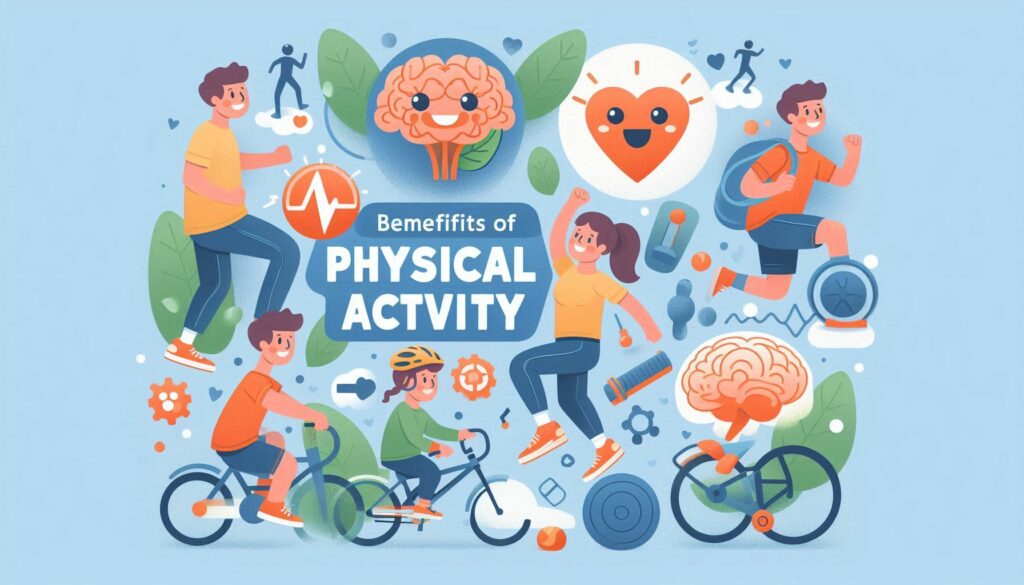Mental Health Focus: Essential Tips for Better Well-being

Key Highlights
- Prioritizing mental health is crucial for overall well-being and a fulfilling life.
- Understanding the factors that influence mental health, including biological, environmental, and social aspects, is essential for early intervention.
- Incorporating mindfulness techniques, stress reduction practices, and physical activity into daily routines significantly enhances mental well-being.
- Recognizing the signs of mental health conditions and seeking support from mental health services are crucial steps in promoting recovery.
- By fostering open conversations and reducing the stigma surrounding mental health, we can create a more supportive and understanding society.
Introduction
In today’s busy world, taking care of your mental health is very important for feeling good overall. Mindfulness is about being present and focused on now. This practice helps support mental wellness. When people learn about mental health conditions and use good strategies, they can handle life’s challenges better. This leads to more fulfilling lives and greater resilience.
Understanding Mental Health and Its Importance
Mental health is about how we feel, think, and interact with others. It affects our choices and our overall quality of life. When we have good mental health, we can handle stress better, build strong relationships, make good decisions, and achieve our goals.

On the other hand, ignoring mental health can lead to serious problems. It can affect our physical health, relationships, and work life. So, taking care of our mental health is very important. It is a key part of living a healthy and successful life.
What is Mental Health?
Mental health is a state of feeling good. It helps people deal with everyday stress, work well, and help their community. Remember, mental health is not just about not having mental illness. It is a range that changes throughout our lives.
Just like our physical health changes, our mental health can change too. Several things can affect how we feel, such as stress, life events, and our genes. Resilience is important for good mental health. It means being able to face challenges and recover from them. To build resilience, we need to learn how to cope, keep a positive attitude, and ask for help when we need it.
Keeping good mental health is vital for our overall well-being. It affects our physical health, relationships, and how we do in different areas of life.
The Connection Between Mental Health and Overall Well-being
The link between mental and physical health is clear. Issues with mental health, like depression and anxiety, can show up in the body. You might feel tired, have trouble sleeping, or notice changes in your appetite. Ignoring mental health can raise the chance of getting long-lasting physical health problems.
On the other hand, taking care of mental health can help physical health. Using ways to reduce stress, developing good coping methods, and asking for help can lead to better health results. It is important to look at mental health completely. This is key for total well-being. It helps people live healthier and happier lives by prioritizing regular times for self-care activities such as relaxation, meditation, and engaging in low-stress hobbies to improve overall well-being.
Key Factors Influencing Mental Health
Many things can affect a person’s mental health. These can include genetics, as well as the environment and social connections. It is important to understand these factors. This helps us spot possible risks, encourage safety measures, and offer the right support.
By recognizing how these influences work together, we can create better ways to keep and improve mental health throughout life.
Biological Factors and Mental Health
Biological factors are very important in how a person can be affected by mental health conditions. For example, genes, brain chemistry problems, and issues with brain structure can all play a part in the development of mental illnesses.

If mental health conditions run in families, an individual may be at a higher risk because some genes can be inherited. Substance use disorders can also change brain chemistry, which can affect mental well-being a lot.
It is important to understand how biological risks and environmental factors work together. This understanding helps with early detection and treatment. It also helps create treatment plans that are made for individual needs.
Environmental Influences on Mental Health
Environmental influences include many outside things that can affect a person’s mental health. These can have good or bad effects. For instance, experiences of trauma, abuse, neglect, and ongoing stress can lead to serious mental health conditions.
In today’s digital world, social media plays a big role in our lives. While it helps people connect, it can also lead to anxiety, depression, and issues with body image. This is especially true for kids and teens in the United States.
It is important to create safe places that make people feel secure and connected. Doing this can support good mental health for individuals. We also need to tackle the problems that lead to unfair access to mental healthcare. This will help us build a fair society that values mental health.
Strategies for Improving Mental Health
There are many ways people can improve their mental health and build resilience in their daily lives. These ways include developing healthy habits, finding positive ways to cope, and asking for professional help when needed. By taking care of their mental health, people can live happier and more meaningful lives.
It’s important to understand that getting professional help shows strength, not weakness. Mental health experts offer great support, advice, and treatments based on what each needs.
Daily Practices for Mindfulness and Stress Reduction
Incorporating mindfulness and stress reduction into your daily routine can greatly help your mental health. Mindfulness means being aware of the present moment without judging it. It’s about noticing your thoughts, feelings, and body sensations.
- Mindfulness Meditation: Try short moments of mindfulness meditation. Focus on your breath or how your body feels to find calm and ease anxiety.
- Deep Breathing Exercises: Take deep, diaphragmatic breaths throughout the day. This can help when you feel stressed and can promote relaxation.
- Establish a Bedtime Routine: Set a regular sleep schedule. Use relaxation techniques before bedtime, like reading or taking a warm bath, to improve your sleep and lower stress.
By regularly practicing these methods, you can boost your self-awareness, lower your stress, and enhance your overall mental well-being.
The Role of Physical Activity in Enhancing Mental Health
The benefits of physical activity go beyond just being healthy. They also affect mental well-being a lot. When you exercise regularly, your body releases endorphins. These are chemicals that can boost your mood and lower stress hormones like cortisol.

Physical activity can help you sleep better, feel less tired, and have more energy. This all helps you feel good overall. While having some caffeine can wake you up, too much caffeine can hurt your sleep and make you feel more anxious.
Adding physical activity to your daily life, like walking fast, jogging, dancing, or doing any fun movement, can really help improve your mood, cut down stress, and boost your mental well-being.
Conclusion
In conclusion, taking care of mental health is very important for our overall well-being. It is key to understand how mental health matters in our daily lives. When we recognize what affects mental health and use methods like mindfulness, reducing stress, and staying active, we can strengthen a healthier mindset. Helping those facing mental health struggles and raising awareness in our communities will lead to a kinder and more understanding society. Let’s work together to build a culture where mental health is valued and supported for a better future.
Frequently Asked Questions
What Are the Signs of Good Mental Health?
Signs of good mental health are feeling happy most of the time and handling stress well. It also means having good relationships with other people and showing strength when faced with difficulties. Resilience is important in these situations.
How Can I Support a Loved One Struggling with Mental Health Issues?
Supporting a family member who has mental health issues means being kind and understanding. It’s important to listen to them without judging. You should help them find mental health services if they need it. Also, remember to respect their privacy when it comes to sensitive information.
Are There Effective Treatments for Mental Health Disorders?
Yes, there are good treatments for mental health disorders. You can find useful information on the National Institute of Mental Health (NIMH) gov website. It has details on different proven treatments, like therapy and medication.
How Can Mental Health Awareness Benefit Society?
Mental health awareness helps society in many ways. It reduces the stigma around mental health issues. It also promotes early intervention, which can lead to better outcomes. Awareness encourages people to seek help when they need it. Plus, it creates a more supportive and inclusive environment in the United States, as stated by the NIH.






